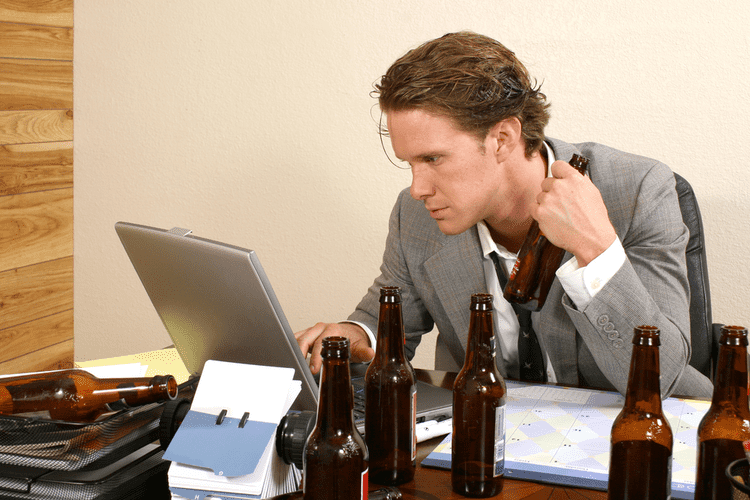10 Signs of Relapse in Your Loved One
Content
Submit your number and receive a free call today from a treatment provider. Accepting depression – When people believe that life is pointless over their failures, this is the time to seek treatment again, where they may regain their proper perspective on longer term recovery and relapse. Futures embraces the complexity of addiction, co-occurring mental health, and primary alcohol relapse mental health conditions to empower recovery and improve outcomes through evidence-based practice, coordinated care, and mission-driven culture. For some, relapse will be quick and they return to their support groups and get back on track. For others, the road will be long and they may never return to recovery. Still, for others, their first relapse will end in death.
Some examples of setbacks are not setting healthy boundaries, not asking for help, not avoiding high-risk situations, and not practicing self-care. A setback does not have to end in relapse to be worthy of discussion in therapy. Cognitive therapy is one of the main tools for changing people’s negative thinking and developing healthy coping skills . The effectiveness of cognitive therapy in relapse prevention has been confirmed in numerous studies . Finally, physical relapse is when an individual starts using again. Some researchers divide physical relapse into a “lapse” and a “relapse” .
The Stages of Recovery
It can be compared to someone having a flare-up of their diabetes or hypertension symptoms. This can also take the form of items missing from your home, including electronics, jewelry, furniture, clothing, etc. As you can see, the road to sobriety and recovery is rarely a walk in the park. Most addicts, unfortunately, will relapse once if not multiple times along the way. For people who have been in a rehab facility for at least 30 days, which is considered the beginning or early stage of recovery, the probability of relapsing is percent. Attributing the lapse to personal failure typically leads to guilt and negative emotions that can lead to increased drinking to avoid guilt or feelings of failure. Our emotions influence our thoughts and can be a big driver of how our minds and bodies react.
- You stop attending all meetings with counselors and your support groups and discontinue any pharmacotherapy treatments.
- I won’t return to active addiction.” You’re mapping out the details of alcohol and drug relapse, such as when, how, and with whom it will take place.
- Initially, this number may seem alarming, however, many of these individuals who relapse will find recovery again and go on to long-term recovery.
- There are usually 3 stages in the relapse process, and identifying them can help you avoid a full-blow return to drinking.
- A warning sign is when clients ask for professional help and consistently ignore the advice.
- But as part of their all-or-nothing thinking, while they were working, they felt they didn’t deserve a reward until the job was done.
This can help encourage you to develop coping strategies. It can show you what you need to change to recover successfully. People are at risk of relapse if exposed to risk factors. However, emotions and resulting behaviors may already be laying the foundations for future relapse. Relapse is considered a normal part of the recovery process.
Don’t Know Where to Start?
Letting other healthy self-care practices fall by the wayside can put you at risk too. This could include neglecting things like spiritual needs, mindfulness, therapy, taking prescribed medications, and participating in activities you enjoy. When you ignore the things that keep you feeling well, you may lack the energy and motivation to resist triggers. The associations your brain makes with people, places, feelings, and situations tied to alcohol use are strong. You can’t just talk yourself out of drinking when you run into these triggers. It takes a lot of time and work in recovery and sometimes medications to retrain your brain’s reward center. Planning a relapse – When you’re on the brink of an alcohol relapse, you might be planning how it will all happen.
- With several types of treatment and levels of care, we meet you wherever you are in recovery.
- If you find you are avoiding people or activities that support your sobriety, it’s time for an honest evaluation of your motives.
- This can be seen in how they are engaging with others, their outer appearance, and overall ways they are tending to their needs.
- This is especially true if there is a marked change in eating or sleeping habits.
- In a 2015 article published in the Yale Journal of Biology and Medicine, Dr. Steven Melemis described three stages that occur during relapse.
- They won’t feel so overwhelming, and you will feel less alone.
This way, you can get the help you need, and relapse prevention can be implemented before you physically relapse. Relapse is preventable; don’t wait until physical relapse occurs.
Missing meetings and therapy sessions
You may not be able to stop the next day, and you’ll get caught in the same vicious cycle. 5 Risks When Drinking Alcohol In The Summer SunSummer is a wonderful time to go outside and enjoy outdoor activities. However, when these activities include alcohol, it can be a dangerous mix.
- Eating disorders, drug and alcohol abuse, compulsive gambling, and other destructive behaviors are all ways of self-medicating emotional pain and other issues.
- The most common cause of relapse is failure to use coping strategies.
- If you feel deprived and maybe a little bit sorry for yourself, you are more vulnerable to temptation.
- Drug use may have started as a “good time,” but eventually, it led to a life in chaos, poor health, and a pile of consequences.
Go through what you think the reasons for your relapse might be and how you can avoid a future situation. Approaching a loved one or friend about his or her secretive behavior that you suspect is related to substance abuse can be one of the hardest things that you ever do.
Alcohol Relapse Warning Signs
It helps them to know that there is usually only a small percent of their lives that needs to be changed. It can also be assuring to know that most people have the same problems and need to make similar changes. Clinical experience has shown that common causes of relapse in this stage are poor self-care and not going to self-help groups. In the second stage of recovery, the main task is to repair the damage caused by addiction . Clinical experience has shown that this stage usually lasts 2 to 3 years.

Just encountering these things can bring on powerful urges and cravings. If you’re at the point where you don’t try to avoid relapse triggers or are intentionally seeking them out, you can expect some cravings and urges. This is https://ecosoberhouse.com/ pretty much throwing down the gauntlet between you and recovery, and it’s time to get help. Proper self-care will make you feel better about yourself, and will be sending a message to yourself that you care about your wellbeing.
Clinical experience has shown that when clients focus too strongly on how much they used during a lapse, they do not fully appreciate the consequences of one drink. Once an individual has had one drink or one drug use, it may quickly lead to a relapse of uncontrolled using.

